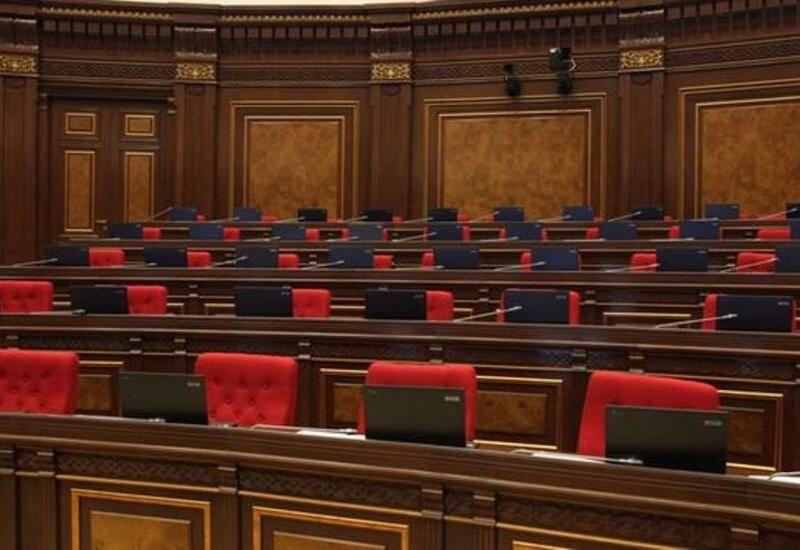
Pundit: Armenia Ratified Alma-Ata Declaration And There Is No Turning Back
The Alma-Ata Declaration of December 1991 is enshrined as thebasis for the border delimitation process that is finally startingbetween Azerbaijan and Armenia. According to the agreement reachedon April 19 at a meeting of the relevant commissions of the twocountries, in the delimitation process the parties will be based onthis document, and this basic principle will be recorded in thedraft Regulations.
Let us note that Azerbaijan has been talking about theadministrative borders of the former union republics as the basisof interstate borders for several years. The Armenian side, hopingto get something more, proposed to rely on various dubious maps, now Armenia is declaring its“diplomatic victory,”claiming that Yerevan managed to achieve recognition of Sovietborders by Azerbaijan. And the opposition, which Nikol Pashinyanagain outplayed, spoke even more persistently about certainreservations with which Armenia ratified the declaration and whichshould be applied.
Political scientist, professor at Hanguk University of RegionalStudies (Seoul) Rovshan Ibragimov commented on the situation andnoted that Armenians can say whatever they want. They need cheapvictories.
"We don't need cheap victories. We won our main victory, andeverything else is just a process. Azerbaijan has never abandonedthe Alma-Ata Declaration, this document has always been the basis,starting in 1991. It was not taken seriously by the Armenianestablishment, which remembered the declaration only after the 2020war. I must note that Azerbaijan is not an irredentist country. Weare not trying to annex the territories of our neighbors.“is toreturn our lands. And we are returning them,” he said.
The Alma-Ata Declaration, which is talked about so much today,was signed a few days after the meeting in Belovezhskaya Pushcha,where the heads of Russia, Belarus and Ukraine entered into anagreement according to which the USSR ceased to exist, thepolitical scientist noted. And the meeting in Alma-Ata (now Almaty- ed.) was a civil divorce, since it was necessary to discuss allissues with other republics that were part of the Union.
The“divorce”, with the consent of the parties, took placeaccording to the principle of uti possidetis juris. This is aprinciple of international law, which means that new states thathave gained independence have the same territory and with the sameborders that they had before, being colonies or dependentterritories, including administrative units within other states to this principle, the administrative border of aterritorial entity becomes the international border of a newindependent state. Initially, this principle was applied to formercolonies. For example, you can see the borders of the formercolonies and now independent states of Africa - they are mostlystraight. The same principle was applied during the collapse of theUSSR and Yugoslavia. The administrative boundaries between therepublics have become international,” said the Seoul Universityprofessor.
As our interlocutor noted, the Armenian opposition, which todayopposes the Alma-Ata Declaration, speaks of the reservations withwhich Armenia ratified this document. Revanchists claim that therewere ten reservations, and one of them is the condition that inaddition to the union republics, autonomous entities that held areferendum and allegedly became independent in full compliance withthe laws of the USSR can join the CIS. This meant, of course,Garabagh. But here's the problem - what is done inside the Armenianparliament is Armenia's personal business. The Armenian parliamenthas the right to make any decisions it wants. But this will nothave legal force at the international level, the politicalscientist emphasized.
“The Armenian opposition, of course, after the agreementsreached on April 19, will begin to put even more pressure onPashinyan. However, these loudmouths should know that reservationsand amendments to international documents must take place directlyupon its signing. Because other parties should be aware of that ,to which they adhere. Otherwise, reservations are not taken intoaccount.
For example, in 1998, an international document on the creationof a new Silk Road within the framework of TRACECA was signed inBaku. Azerbaijan signed it with the proviso that while Garabagh andother Azerbaijani territories are occupied, cargo coming from or toArmenia, or crossing Armenian territory, cannot pass throughAzerbaijani territory. Azerbaijan actually blocked Armenia'sparticipation in TRACECA. Azerbaijan's reservation was accepted byall participants who signed the document, including Armenia. Andthis is reflected in the document. But in the Alma-Ata Declarationthere is nothing about Armenia's reservations. The countries thatsigned it were not aware of them, and such amendments are not madeto international documents retroactively. All Armenia could do wasnot ratify the document. Ratification is the translation ofinternational agreements into domestic law. And this is exactlywhat happened with the Alma-Ata Declaration in Armenia,” saidRovshan Ibragimov.
Legal Disclaimer:
MENAFN provides the
information “as is” without warranty of any kind. We do not accept
any responsibility or liability for the accuracy, content, images,
videos, licenses, completeness, legality, or reliability of the information
contained in this article. If you have any complaints or copyright
issues related to this article, kindly contact the provider above.

















Comments
No comment